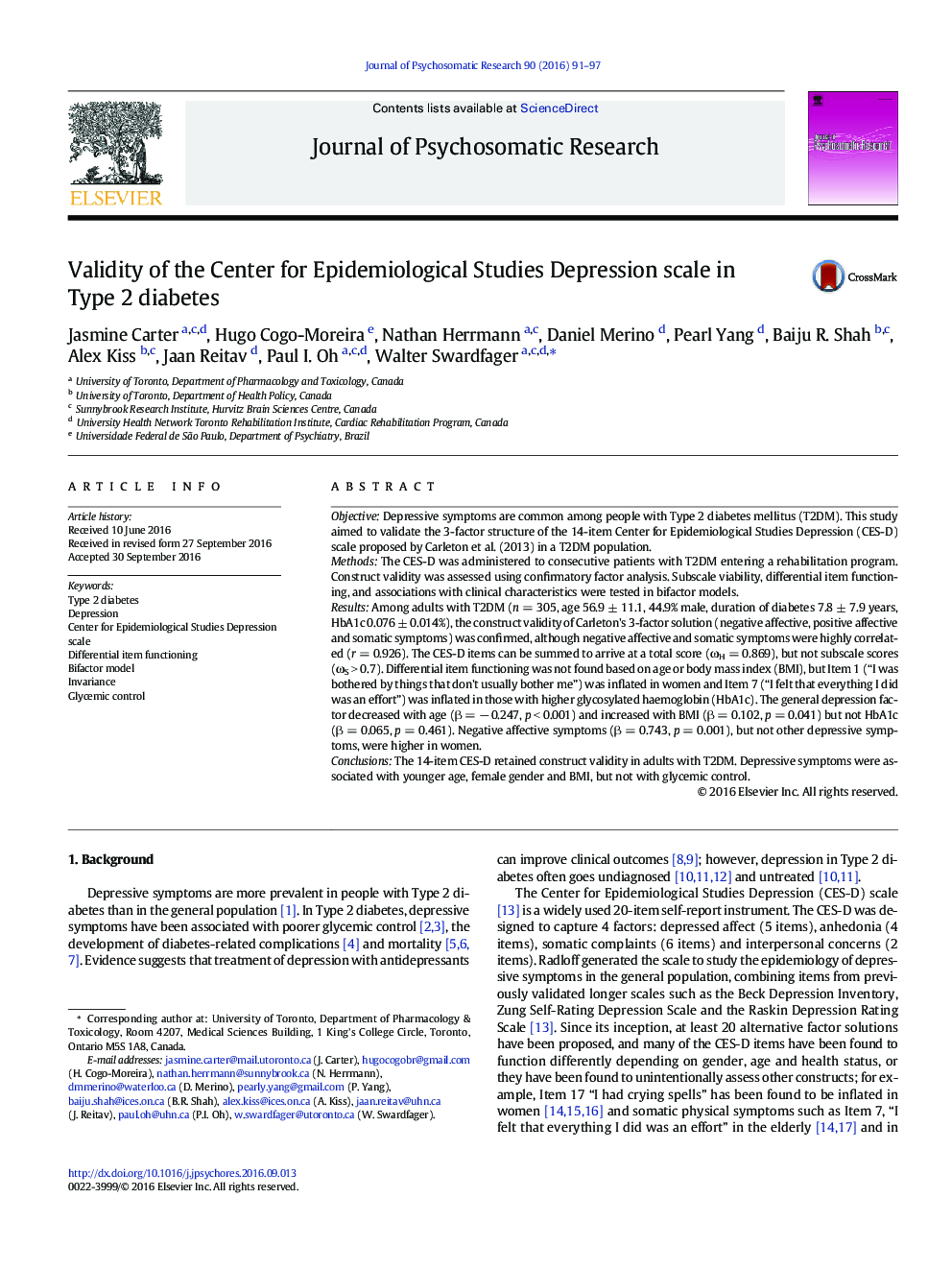| کد مقاله | کد نشریه | سال انتشار | مقاله انگلیسی | نسخه تمام متن |
|---|---|---|---|---|
| 5046127 | 1475905 | 2016 | 7 صفحه PDF | دانلود رایگان |
ObjectiveDepressive symptoms are common among people with Type 2 diabetes mellitus (T2DM). This study aimed to validate the 3-factor structure of the 14-item Center for Epidemiological Studies Depression (CES-D) scale proposed by Carleton et al. (2013) in a T2DM population.MethodsThe CES-D was administered to consecutive patients with T2DM entering a rehabilitation program. Construct validity was assessed using confirmatory factor analysis. Subscale viability, differential item functioning, and associations with clinical characteristics were tested in bifactor models.ResultsAmong adults with T2DM (n = 305, age 56.9 ± 11.1, 44.9% male, duration of diabetes 7.8 ± 7.9 years, HbA1c 0.076 ± 0.014%), the construct validity of Carleton's 3-factor solution (negative affective, positive affective and somatic symptoms) was confirmed, although negative affective and somatic symptoms were highly correlated (r = 0.926). The CES-D items can be summed to arrive at a total score (ÏH = 0.869), but not subscale scores (ÏS > 0.7). Differential item functioning was not found based on age or body mass index (BMI), but Item 1 (“I was bothered by things that don't usually bother me”) was inflated in women and Item 7 (“I felt that everything I did was an effort”) was inflated in those with higher glycosylated haemoglobin (HbA1c). The general depression factor decreased with age (β = â 0.247, p < 0.001) and increased with BMI (β = 0.102, p = 0.041) but not HbA1c (β = 0.065, p = 0.461). Negative affective symptoms (β = 0.743, p = 0.001), but not other depressive symptoms, were higher in women.ConclusionsThe 14-item CES-D retained construct validity in adults with T2DM. Depressive symptoms were associated with younger age, female gender and BMI, but not with glycemic control.
Journal: Journal of Psychosomatic Research - Volume 90, November 2016, Pages 91-97
